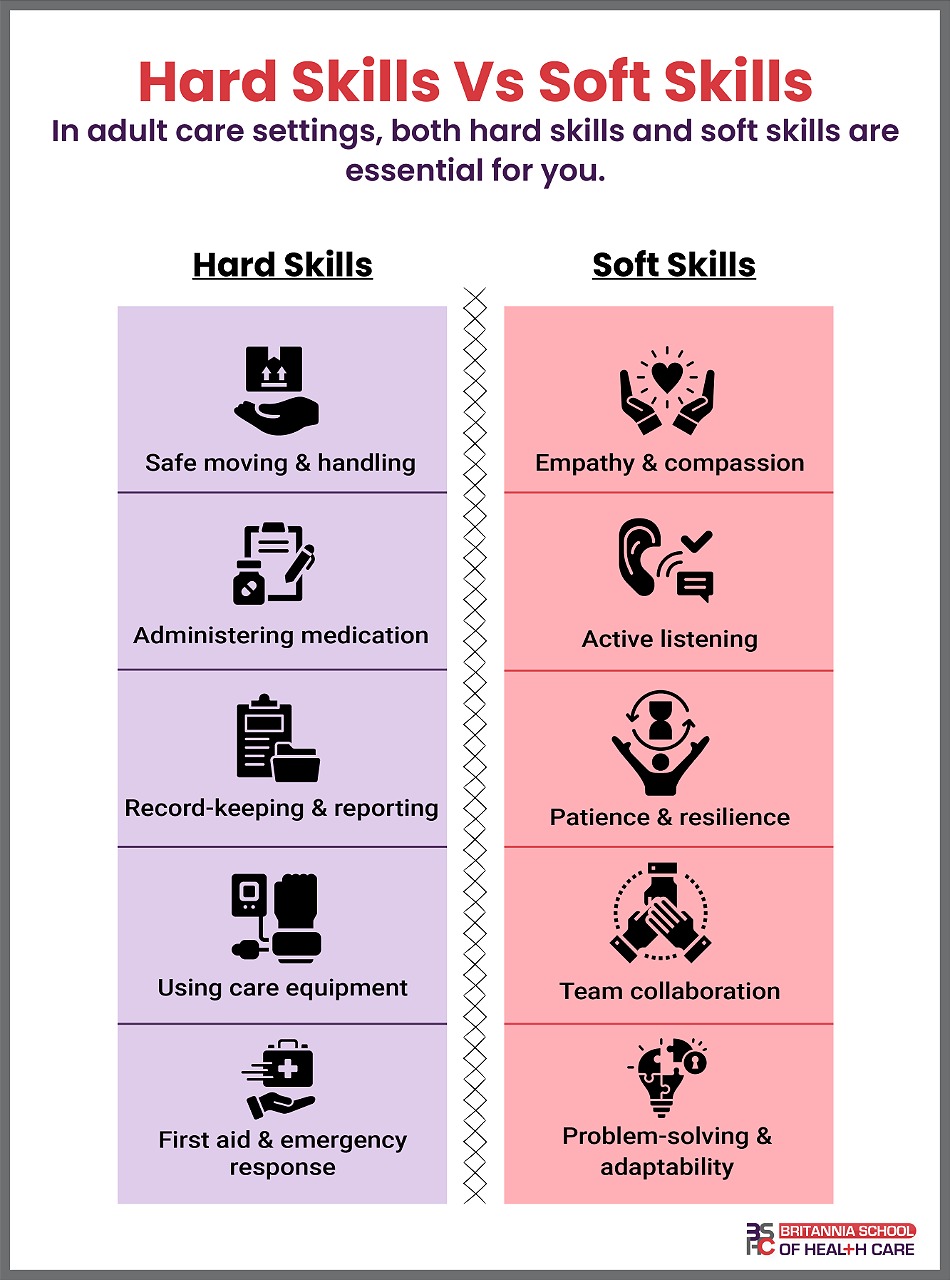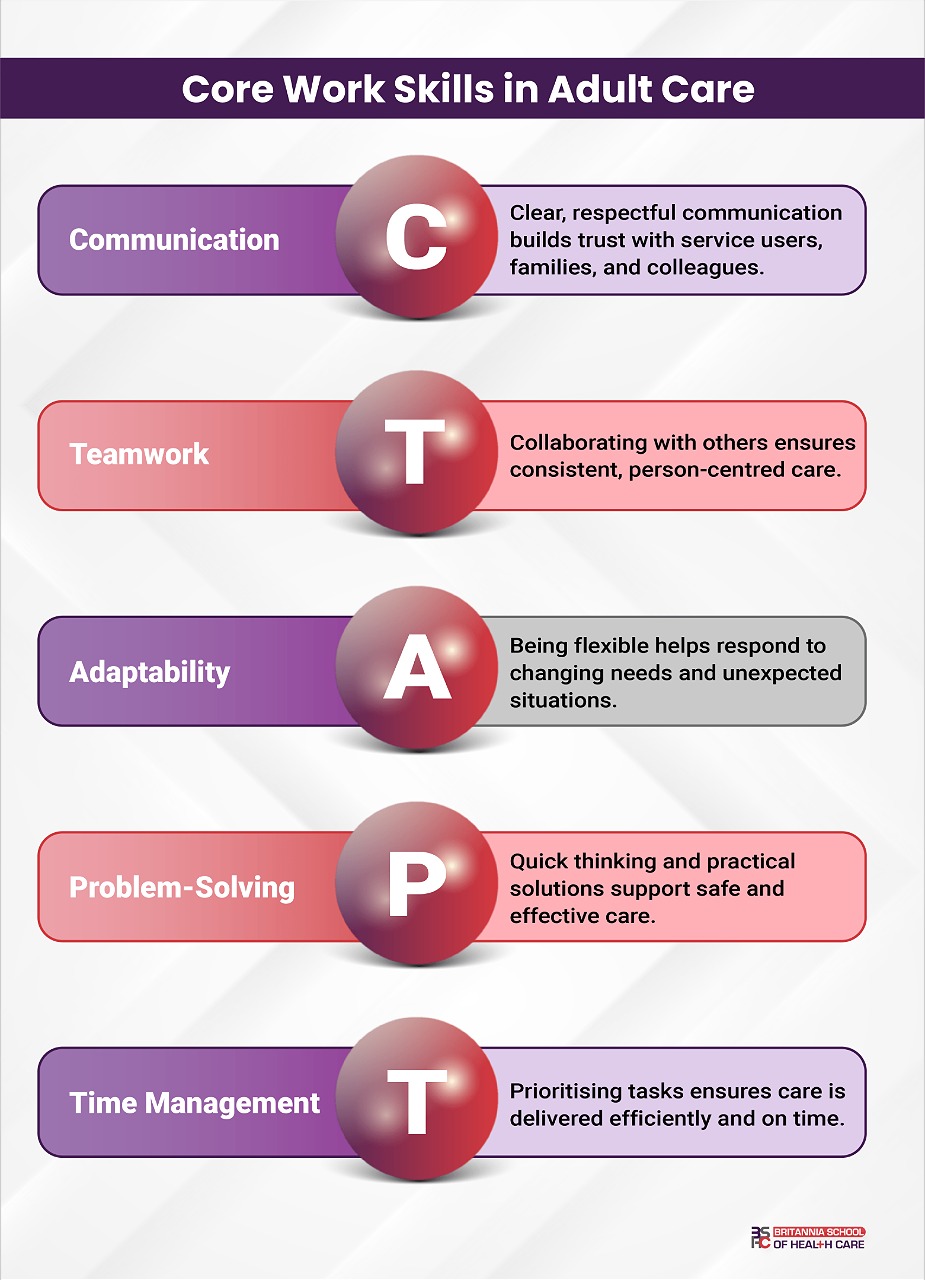Imagine being equipped with all the necessary information, abilities, and confidence to face any difficult circumstance as you walk into the office. Feeling like it is a far-fetched dream, but as a matter of fact it is attainable reality, when you are equipped to meet the present demands. The contemporary work environment is changing at an unprecedented pace. As technology evolves, industries transform, and competition intensifies, succeeding in your career requires more than just technical skills. Working efficiently, engage with colleagues, and advancement in career refer as workplace skills to achieving success in today’s world hinges.
Understanding Workplace Skills
Workplace skills are divided into two main categories:
Hard Skills: Learn through education and training (data analysis, coding, or accounting)
Soft Skills: Soft skills, on the other hand, are interpersonal and personal attributes like communication, problem-solving, and adaptability that shape how you work with others and handle challenges.

Employers stress upon both skills because it enhances teamwork, leadership, and long-term success. For instance, while knowing how to use a particular software program may land you a job, your ability to collaborate, manage time, and solve problems will determine how well you progress in your career. Workplace skills are also highly transferable, meaning they apply across industries. A teacher, a healthcare worker, and a business executive all need communication, adaptability, and organisation to succeed.
5 Examples of Workplace Skills That Drive Success
1. Communication
Workplace success entirely depends on communication. Verbal (speaking clearly), Written (emails,reports) and Non-verbal communication (body language, tone) is major continent of it.
Why it matters: Ideas comprehend well through clear communication. Employers trust those professionals who are able to communicate complex ideas through interactive communication. It leads less misunderstandings while working with colleagues.
Example: A project manager leading a team meeting who explains goals clearly and listens to concerns effectively will ensure that everyone is on the same page.
2. Teamwork
It is the ability to acknowledge transformation, cope with changing goals, and coming up with creative options when given with obstacles. It all goes down to demonstrating endurance and perceiving challenges as opportunities.
Why it matters: Strongest workplace relationship depends on collaboration and teamwork skills. Employers thrive that employee who works in collaboration and share knowledge openly.
Example: David, a software developer, faced a crisis when a key third-party service shut down just two weeks before launch. Instead of panicking, he researched alternatives, built a prototype within 48 hours, and presented a cost-effective solution. His adaptability not only kept the launch on track but also delivered a safer, more economical outcome.
3. Adaptability
A willingness to work together professionally and effectively with people with distinct personalities for the purpose to accomplish a common goal. Empathy, resolution of conflicts, and an overall awareness of duty are every element of it.
Why it matters: Employers give value those who accepts change and adapt themselves instead of resistance. Adaptable individuals are resilient, innovative, and open to learning.
Example: During the global shift to remote work, professionals who quickly adapted to virtual collaboration tools maintained their productivity and often took on leadership roles in guiding others.
4. Problem-Solving
It is an ability to acknowledge understand and manage your own feelings along with individuals that are surrounding you. It acts as a foundation of building awareness of oneself, control over oneself, and strong relationships.
Why it matters: The individual who just not look up the problem but offers the solution using available resources for it, is valuable employee for employees. Leadership potential occurs when a strong problem-solver takes initiatives.
Example: A customer service representative resolving a difficult client complaint by offering a creative solution that maintains customer satisfaction demonstrates problem-solving in action.
5. Time Management
Being busy and working productively is a perfect combination of time management, but it is not same as productive in case of employees. Embracing your responsibilities, fostering a strong sense of integrity and competence, and reliably honouring your commitments are all essential aspects of effective time management.
Why it matters: To increasing output, reliability and minimising stress is possible through effective time management. Employees who prefer to work before crossing deadlines and maintaining quality as well are highly demanded for organisation.
Examples: A software developer using project management tools to track milestones ensures that projects are delivered on time and within scope.
Workplace Skills in Action: Adult Care
✅Communication
In adult care, communication is more than passing on information it is about building trust, showing empathy, and adapting to different needs.
- Example: To ensure understanding and lessen anxiety, a carer can explain medication to a service user with dementia using straightforward language, visual aids, or non-verbal indicators.
✅Teamwork
The colleagues and external professional plays important role while collaboration in adult care. Effective teamwork ensures consistency and safety.
- Example: One care worker helps a coworker move a resident to a better posture during a busy shift to reduce injury and provide a more supportive environment.
✅Adaptability
No two days in care are ever the same. Needs, moods, and circumstances can change quickly, so flexibility is essential.
- Example: When a care professional shows in to help with personal care, they see that the person is upset. They adjust by providing comfort first and coming back later, honouring the person’s emotional condition and dignity, rather than rushing forward.
✅Problem-Solving
Problem-solving in care often means finding safe, person-centred solutions to everyday challenges.
- Example: A resident will not eat at certain times. Instead of pushing, the carer works with the kitchen to deliver modest snacks throughout the day. This helps with nutrition without adding stress.
✅Time Management
Care roles involve multiple tasks from personal care and record-keeping to activities and appointments. Prioritisation is key to ensuring quality care.
- Example: A support worker carefully schedules their visits so that they can talk to service users in a meaningful way while still making sure that medication rounds are on time.

🌱 Why These Skills Matter More Than Ever
All five of the skills mentioned above function in harmony; they complement each other seamlessly. Clear communication strengthens teamwork, and robust organisations consistently seek solutions to challenges. These skills are evaluated during job interviews, promotions, and performance reviews. It also suggests a “hidden currency” that reveals your capability to perform a job as well as your potential to excel, lead, and inspire others.
Final Thoughts: Workplace Skills as the Heart of Care
Workplace skills are the backbone of professional success. They extend beyond technical expertise to include interpersonal abilities that make you adaptable, productive, and reliable. The five skills highlighted communication, teamwork, problem-solving, adaptability, and time management are essential for thriving in any industry. Investing in these skills is not just about doing well in your current role; it is about preparing yourself for future opportunities, leadership roles, and long-term career growth.

